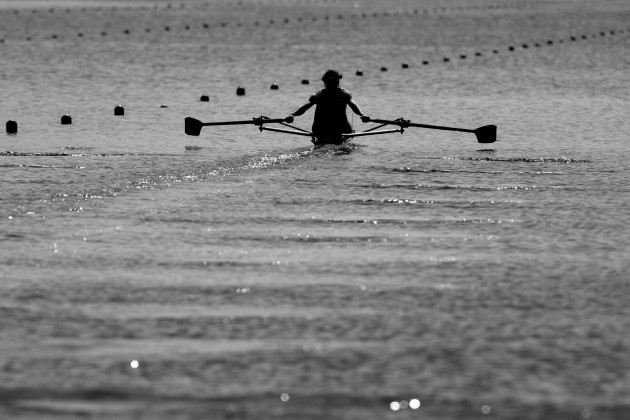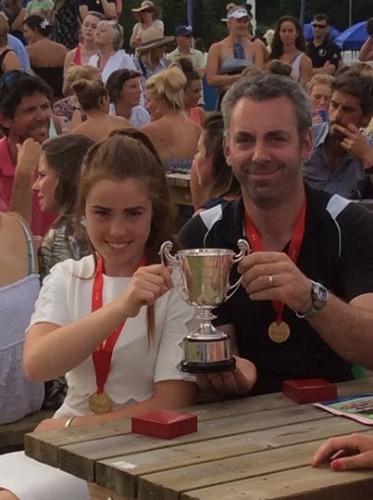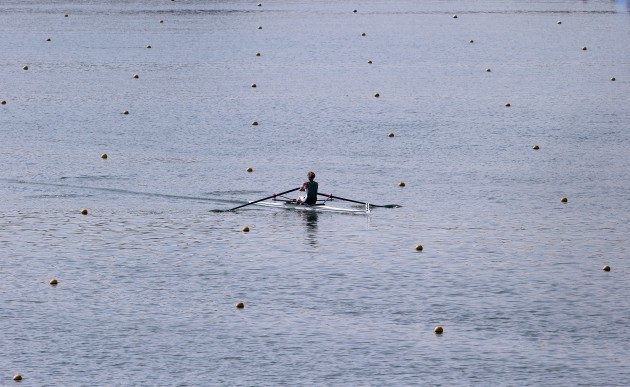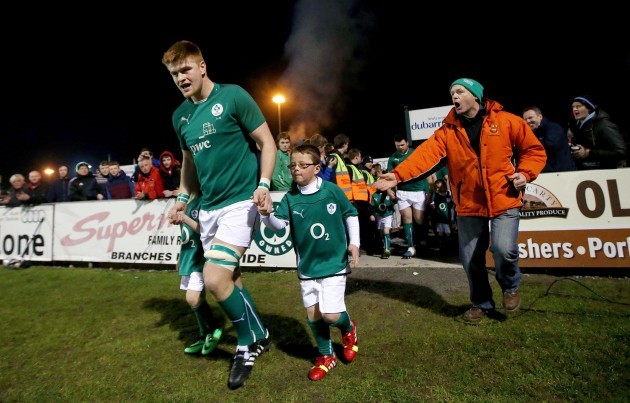ON RECENT FORM GALWAY rower Katie O’Brien will almost certainly go to Rio 2016. She’s just missing one thing.
A team mate.
Having taken up rowing just under 18 months ago, the 17-year-old has recently been able to show her ability and temperament on the international stage.
Not only was O’Brien Ireland’s first ever Paralympian at the prestigious Henley regatta, but she also set new course record on her way to Ireland’s first gold at the venue since 2010.
That solo Sculls victory category over England’s Claire Connon then gave her the confidence to go out and prove the feat was no fluke. O’Brien won again in the trunk and arms classification in last weekend’s Home International Regatta in Cork.
“It was definitely great to get the experience at Henley and then when I went on to the Homes I was racing the same girl so there was a bit of, ‘She’s raced me before, so she’s gonna come back fighting,’” She told TheScore.ie this week with the excitement of victory still running through her voice.
Hailing from Clarinbridge and now a member of the Tribesmen Rowing Club, O’Brien was born with spina bifida. And while the muscles in her left leg have always been weak as a result of the condition, she credits her upper body strength with those hard early years spent in a wheelchair.
Now, she can walk with the aid of a splint. But the youngest in the household is not content with moving along slowly. She has athleticism in her blood.
“I’ve done horse riding and wheelchair basketball, but rowing has taken over now and it’s the only sport I do.
“Because I was in a wheelchair, I’ve always had a good amount of upper body strength while my lower half isn’t very strong.”
In January last year, O’Brien’s hunger for sport brought her to one of Paralympics Ireland’s talent search days. She spied the rowing stall and never looked back.
O’Brien’s trunk and arms classification puts her in a mixed double event under Paralympic rules. So now she must wait on a male to follow her path and come through the search process to help her get to Rio 2016.
“I think it’s going well,” comes her typically positive report, “they’ve got their eye on a few. We’ve got a training camp coming up on the 15th and 16th of August – so hopefully someone will turn up at that.”
One thing is for sure, the lucky man to be named as her team mate won’t just be along for the spin. O’Brien is a born competitor. Her older brother Sean has impressed at every rugby grade he has played, and after captaining Ireland under 20s during this year’s Six Nations, injury deprived him of the chance to lead the side to the Junior World Cup this summer.
However, it didn’t stop him from lending words of advice and nuggets of sports science to the next O’Brien to step onto the international stage.
“He loves coming down, and it’s great to have him there because he’d have done all this kind of thing before, so he knows what to do.
“He knows a lot about sports, getting warmed up and warmed down. He’ll give me tips on what to eat and what not to eat. These are things he would have learned so it’s great to have him.”
Some have joked with admiration that a more suitable name for rowing would be a ‘suffering contest’. Yet having come through so many serious operations to take her out of a wheelchair, on to two feet and into a boat; O’Brien certainly has the mental strength to put the challenge in perspective.
“One of the main things about rowing is that it’s a lot to do with your mind,” she says with a tone that changes from happy and excited to focused, athlete-mode.
“You have to teach your brain to keep going and keep rowing hard, because when you get fatigued or tired, your brain is kind of like, ‘stop, stop rowing’.
“It is quite a repetitive sport. So you’ve to keep up the same strength and try to keep the same technique for the whole race. A lot of what I do is just going over planning my start to the race. I’d be thinking about that before I go out to race and the whole time trying to get yourself set up and ready to go for it.”
With winter bringing a long break in her competition cycle, not to mention the countdown to her Leaving Cert, O’Brien will be hoping that one missing ingredient will be on board at the beginning of next season.




